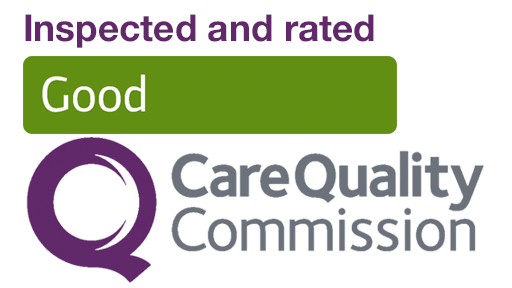
Understanding Different Types of Dementia Care and Support Options
When a loved one is diagnosed with dementia, it can be overwhelming. Many families aren’t sure where to start in finding the right care or understanding what the diagnosis really means. Dementia is a complex condition that affects memory, thinking, and the ability to carry out daily tasks. Each person’s experience with dementia is unique, which makes finding the right care crucial. This guide will help you understand different types of dementia care and support options. Our goal is to provide information that helps you make confident choices in supporting your loved one.
In this guide, we’ll explore practical ways to prevent caregiver burnout, provide tips for managing stress, and highlight helpful resources for family caregivers. By taking care of yourself, you’ll be better equipped to provide compassionate, effective care for your loved one.
What is Dementia?
Dementia is a broad term that describes various symptoms associated with a decline in cognitive function. It affects memory, thinking, language, and the ability to perform everyday activities. Alzheimer’s disease is the most common type of dementia, but other types include vascular dementia, Lewy body dementia, and frontotemporal dementia.
Key Symptoms of Dementia:
- Memory loss, especially recent memories
- Difficulty finding the right words or following conversations
- Changes in mood or personality
- Trouble with familiar tasks, like cooking or using a phone
- Confusion with time or place
- Difficulty solving problems or making decisions
Understanding these symptoms is essential when choosing the right care, as each type of dementia presents unique challenges and needs.
The Importance of Specialized Dementia Care
Dementia is not simply part of aging. It is a progressive condition that requires specialized care and support to manage symptoms and provide quality of life. Professional dementia care can address emotional, mental, and physical needs while allowing families to maintain a strong bond with their loved one.
Care services are often customized to help individuals live comfortably, maintain independence, and stay safe at home. Personalized care ensures that each person receives support for their specific type of dementia, stage of progression, and personal preferences.
UK At-Home Care
If you are in Bolton, Wigan, or Bury, we can help your loved one thrive with our at-home care services.
Contact a Right Care Team MemberTypes of Dementia Care
When it comes to dementia care, there are various options available depending on the needs of your loved one. From in-home care to more specialized live-in support, each option offers distinct benefits.
1. In-Home Dementia Care
In-home dementia care, also known as domiciliary care, allows individuals to remain in their own homes while receiving support. This option is ideal for those in the early to moderate stages of dementia who may need assistance with daily tasks but are still somewhat independent.
Benefits of In-Home Dementia Care:
- Allows individuals to stay in a familiar environment
- Provides one-on-one support tailored to specific needs
- Reduces the risk of confusion and distress that can come with relocating
- Supports family caregivers by providing additional help
- Helps manage personal routines, like bathing, dressing, and eating
In-home care providers offer a range of services, including help with personal care, medication reminders, meal preparation, and companionship. Many families find this option appealing as it promotes independence and allows their loved one to stay connected to the community.
2. Respite Care for Family Caregivers
Caring for a loved one with dementia can be demanding, and family caregivers often need time to rest and recharge. Respite care provides temporary relief by allowing trained caregivers to step in for a short period. Respite care can range from a few hours to a few days, depending on the family’s needs.
Benefits of Respite Care:
- Prevents caregiver burnout by offering time for self-care
- Ensures continuity of care even when primary caregivers need a break
- Provides peace of mind knowing that a professional is caring for your loved one
- Can be arranged at home or in a facility, depending on preference
Respite care services are a valuable option for families who want to balance caregiving with other responsibilities. Many families report feeling more energized and focused after taking advantage of respite services.
3. Live-In Dementia Care
For those who need round-the-clock support, live-in dementia care is a viable option. In live-in care, a trained caregiver resides in the home, providing 24-hour assistance. This service is ideal for individuals in advanced stages of dementia who require continuous support and supervision.
Benefits of Live-In Dementia Care:
- Provides consistent, personalized care throughout the day and night
- Reduces the risk of falls, wandering, or emergencies
- Offers companionship, which is vital for emotional well-being
- Maintains the comfort and familiarity of home
Live-in dementia care often includes help with daily activities, nighttime support, medication management, and emotional support. Caregivers may also be trained in dementia-specific communication techniques and behavioral management.
4. Specialized Memory Care Units
Memory care units are designed specifically for individuals with dementia. They are located within assisted living facilities or nursing homes and offer a safe, structured environment for those in moderate to severe stages of dementia. Memory care units typically have trained staff, dementia-friendly layouts, and activities that support cognitive function.
Benefits of Memory Care Units:
- Provides a secure environment to prevent wandering
- Trained staff manage complex dementia behaviors, such as agitation and confusion
- Offers cognitive and recreational activities tailored to dementia patients
- Provides access to medical professionals if needed
While memory care units involve a transition to a new living environment, they offer specialized support and amenities that are beneficial for those with advanced dementia. Memory care units are particularly helpful for individuals who require a high level of structure and supervision.
Choosing the Right Dementia Care Option
Selecting the right dementia care option depends on several factors, including the type and stage of dementia, the person’s preferences, and the support available within the family. Here are some steps to help you make an informed decision:
1. Assess Care Needs
Start by assessing your loved one’s needs. Consider the type of support required, such as personal care, medication management, and companionship. Identify any specific behaviors, like wandering or nighttime confusion, that may require special attention.
2. Evaluate Budget and Resources
Understanding your budget and resources is crucial when selecting a dementia care option. Home care may be more affordable than a residential facility, but costs can add up for more extensive care, such as live-in or memory care.
3. Consider Your Loved One’s Preferences
Whenever possible, involve your loved one in the decision-making process. Knowing their preferences regarding care settings, routines, and specific caregivers can make the transition easier and improve overall satisfaction with the chosen care option.
4. Seek Professional Guidance
Consult with a healthcare provider, social worker, or dementia care specialist. Professionals can provide insight into which options may work best and refer you to local resources or support programs.
5. Visit Care Facilities or Meet with Caregivers
Visiting memory care units or meeting with potential in-home caregivers gives you a better sense of the care environment and ensures that the care providers are a good fit for your loved one.
How Right Care Supports Families with Dementia Care
At Right Care, we understand the unique challenges that come with dementia care. Our services are designed to support both individuals with dementia and their families, offering compassionate, specialized care that promotes comfort, safety, and quality of life.
Our Dementia Care Services Include:
- Personalized Care Plans: Each care plan is customized to fit the specific needs, preferences, and routines of your loved one.
- Trained Dementia Caregivers: Our team is trained in dementia-specific communication, behavior management, and safety practices.
- Flexible Care Options: From part-time in-home care to full-time live-in support, we offer flexible options that evolve as your loved one’s needs change.
- Companionship and Social Engagement: We provide companionship to support emotional well-being and activities that promote cognitive function.
- Peace of Mind for Families: Our team is dedicated to providing families with regular updates, ensuring you’re always informed and confident in the care your loved one receives.
Resources for Families of Dementia Patients
Caring for someone with dementia can be overwhelming, and having access to resources is essential. Here are some helpful resources:
- Alzheimer’s Society: Offers information, support, and local resources for families affected by Alzheimer’s and other forms of dementia.
- Family Caregiver Alliance: Provides educational materials, support groups, and resources for family caregivers.
- National Institute on Aging: A government resource offering information on dementia and related health topics.
- Online Support Groups: Many websites host online communities where family members can connect, share experiences, and offer support.
Tips for Family Caregivers
If you’re caring for a loved one with dementia, here are some tips to help you manage:
- Create a Routine: A consistent routine helps reduce confusion and anxiety for those with dementia.
- Practice Patience: Dementia can lead to frustration and mood swings. Approach your loved one with patience and understanding.
- Stay Informed: Educate yourself on dementia care techniques and strategies. Knowledge helps you manage challenging behaviors effectively.
- Take Breaks: Caregiver burnout is common. Taking breaks and using respite care can help you recharge.
- Seek Support: Connecting with other caregivers or professionals provides emotional relief and practical advice.
Choosing dementia care for a loved one is a major decision that requires thought, compassion, and planning. By understanding the types of dementia care available—whether in-home, respite, live-in, or memory care—you can select an option that best suits your loved one’s needs and quality of life.
At Right Care, we’re dedicated to providing exceptional, personalized dementia care that supports both individuals and their families. Our goal is to make this journey as positive and comfortable as possible for everyone involved.







